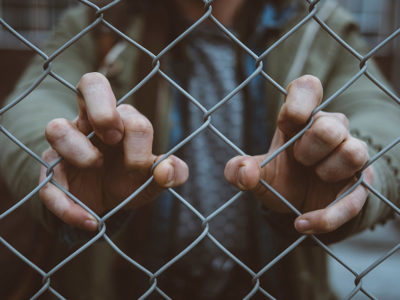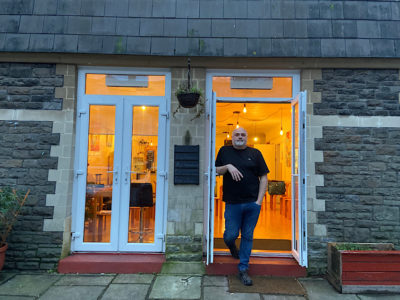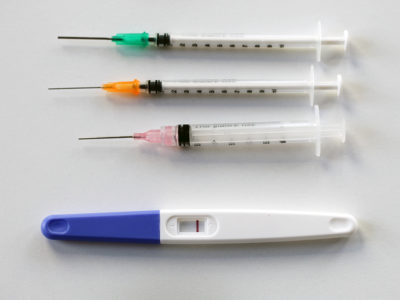No band gets to immediately play the big stadiums. Even Queen started in small clubs and venues. Cardiff is full of amazing venues ready to show the city new and upcoming bands, and here are a few that should be checked out while you can.
The Moon
Reopened early 2018 after briefly closing, this small bar and venue is located in Womanby Street, and hosts a number of free gigs nightly. They also host small festivals, fundraisers, and club nights. Upcoming bands include Carolines, The Kinky Wizzards, and Ironbird
Buffalo Bar
Hip hop instrumentals, lo-fi beats, and jazz often play out of this bar during the day, and by night, a place where live bands can jam to their heart’s content, located on Windsor Place. Upcoming events include Devilman & Friends, and Spectrum with special guest Wockney.
The Globe
Originally an old cinema, this has now been converted into a 350 capacity venue that has seen the likes of pop-punk band With Confidence perform within the last months. Upcoming gigs include The Faim, The Spitfires, and cover bands like Green Haze and Guns 2 Roses
Small venues have been a staple for live music in the city, but their closure could be problematic for up-and-coming bands

The Moon and FUEL Rock Club on Womanby Street
A small van full of instruments and very tired people rolls up to a small venue after a long journey. The band exit the van, unsure if anyone would be be in this venue to see them perform their own music. This band have only been performing for a few months together, and were extremely lucky to be able to get this gig, even though this is a non-ticketed event and some of the profits coming from the bar at this venue. Many bands start off in small venues when they start to play and showcase their music. But venues that assist these bands could be at risk due to massive closures across the country.
A live music venue census taken at the beginning of 2018 showed that out of the 200 live venues that held a capacity of approx.350 people, 29% of those venues had experienced property development problems, which provoked noise complaints. This has happened as recently as Dec 2018 with the announcement that popular indie music venue, Gwdihw, would close its doors at the beginning of 2019 due to the landlords not renewing the venue’s lease.
UK Music, the organisation that represents the music industry in Britain, stated that in the last decade, 35% of venues across the United Kingdom have now closed. Well known Welsh bands like Bullet For My Valentine would have started at these venues, with BFMV bassist Jamie Mathias starting out working at the bar in FUEL Rock Club, another grassroots club on Womanby Street.
Grassroots bands have been a helping hand in being the launchpad for upcoming bands for them to start off somewhere. More often than not, the conversions of city centre buildings into of housing, and the subsequent noise complaints from the residents force the council’s hand in their demolishment.
Experiences from those in the business
Adam Roffey is a bassist in the alternative rock band, Press To MECO. He says about the band’s beginnings playing in grassroots venues, including FUEL Rock Club, stating, “Grassroots venues are important to any musician starting out on their career in a band. They are where you hone your skills as a musician, writer and a performer.
I feel wherever you get to as a musician you will always look back and remember those times with fond memories”.

FUEL Rock Club, one of the grassroots venues within Cardiff
“I feel wherever you get to as a musician you will always look back and remember those times with fond memories”
Angie Evans is the co-owner and director of FUEL Rock Club on Womanby Street. This venue hosts small local bands, club nights, and cover bands. She does hope for a positive future for the club, saying, “It’s really difficult to do, and to stay on Womanby Street, which is a great vibe, and I hope that we continue to help the young bands, fulfil their ambitions and their dreams, and then come back to us and say “Thanks so much for that gig where we had two people and it was crap, and you actually gave us some food and we were starving”. This sort of vibe. That’s what we do it for, and I hope everyone continues to really love it.”
She continues, “The rock and metal community here in Cardiff is small, it’s definitely a niche market I would say, and it makes it hard for us to survive, and that’s why I think a lot of clubs have failed, but we try and stick to our roots here, and keep it going, and we just about manage it which is great.”
Angie mentions the Music Venue Trust, an organisation that works closely with grassroots venues. She says, “The Music Venue Trust provides us with help and assistance. We’ve had noise complaints, and things like that, and they’ve given us lots of help with that, free of charge legal advice and things like that. They’re on a crusade at the moment to help grassroots venues across the country in terms of government’s financial assistance, which is fantastic”. Patrons of the charity include the bands Madness, Enter Shikari, and also solo performers like KT Tunstall and Sir Paul McCartney.
Here to help
The Music Venues Trust aims to protect these grassroots venues across the country, including Wales, for the benefit of communities, venues, and upcoming artists. As Mark Davyd, founder and CEO of the Music Venues Trust, says, “Without these Music Venues, we wouldn’t have had the The Beatles, The Clash, Kate Bush, Dire Straits or Radiohead. And if we don’t recognise the role they play there won’t be any more Adeles or Ed Sheerans.” continuing on to say “We think Music Venues should be good neighbours, and we think that if they don’t do that then there should be enforcement through the law to ensure that they meet a good standard of neighbourliness. But we have to be practical and say that Music Venues make noise. Music is a noise. Noise is a nuisance. Is music therefore a nuisance? We don’t think so.”

Womanby Street, protecting its grassroots venues
There is possible hope for the future of live up-and-coming bands in Cardiff, as the Welsh Government have announced plans to fund opportunities in music for young people up to 25 years old. Named “Anthem”, up to £250,000 will be given to this new music fund to give musical opportunities for young people aged between 3 and 25 across all genres in all communities throughout Wales. With the announcement of this fund
Sadly, as Anthem won’t come into effect until 2021, Wales can only hope for the best for the future of live music, and support all those venues. Even if they’re not the biggest named bands in the world, with these venues, one day they just might be.
No band gets to immediately play the big stadiums. Even Queen started in small clubs and venues. Cardiff is full of amazing venues ready to show the city new and upcoming bands, and here are a few that should be checked out while you can.
The Moon
Reopened early 2018 after briefly closing, this small bar and venue is located in Womanby Street, and hosts a number of free gigs nightly. They also host small festivals, fundraisers, and club nights. Upcoming bands include Carolines, The Kinky Wizzards, and Ironbird
Buffalo Bar
Hip hop instrumentals, lo-fi beats, and jazz often play out of this bar during the day, and by night, a place where live bands can jam to their heart’s content, located on Windsor Place. Upcoming events include Devilman & Friends, and Spectrum with special guest Wockney.
The Globe
Originally an old cinema, this has now been converted into a 350 capacity venue that has seen the likes of pop-punk band With Confidence perform within the last months. Upcoming gigs include The Faim, The Spitfires, and cover bands like Green Haze and Guns 2 Roses





